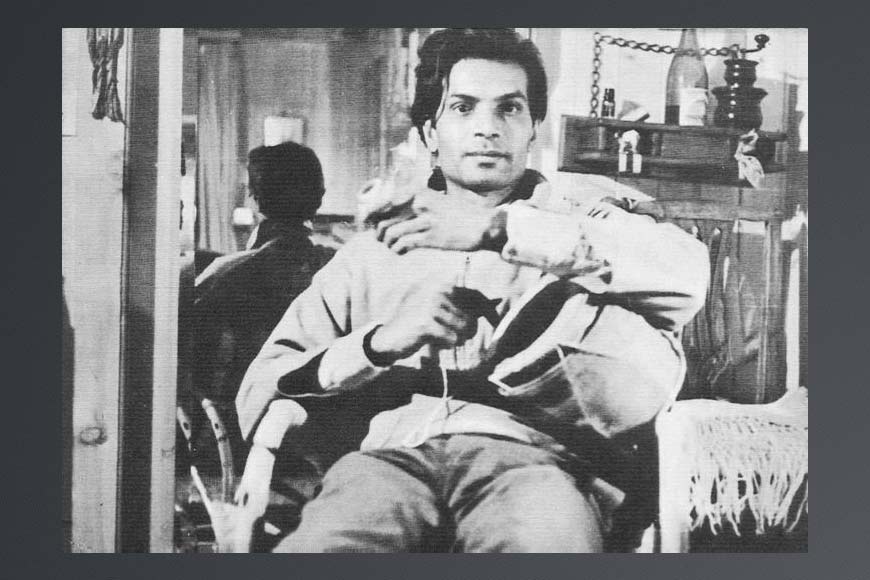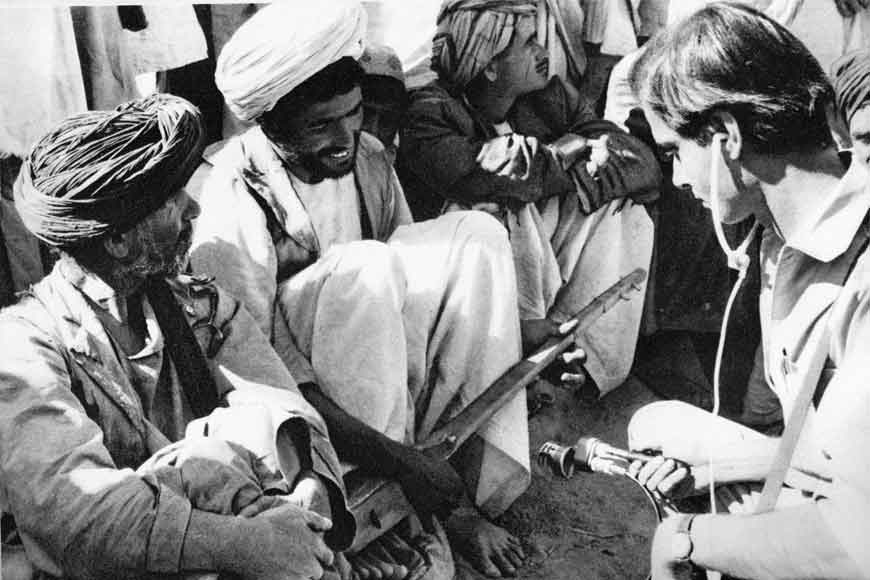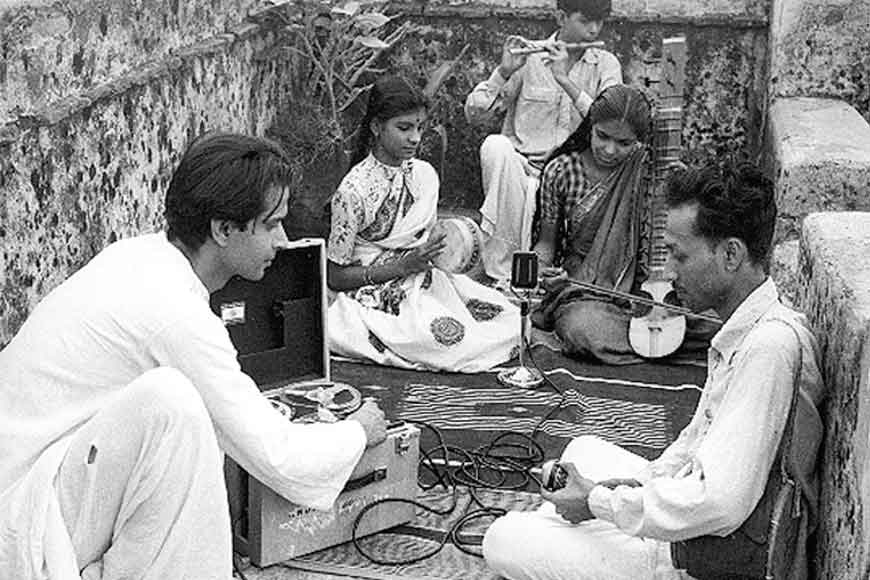Famous Field Recordist Deben Bhattacharya who made Music on desert roads

It was a summer evening in 1955 and three youths -- a Bengali, a Frenchman, and an Englishman -- were busy finalizing a road trip to India from London. Over the next six to eight months, they would travel 12,000 miles in a battered milk van all the way from London to Calcutta, passing through Greece, Turkey, Syria, Jordan, Iraq, Iran, Afghanistan, Pakistan, and finally reaching India. Their aim? Capturing the sounds of the world!
One of the trio, was a field recordist (probably the first Indian), poet, filmmaker, musicologist and amateur ethnomusicologist Deben Bhattacharya. He was accompanied by his friend Colin Glennie from the UK who was a student of architecture and the third was French journalist Henri Anneville who joined them for some wild adventure.
Deben Bhattacharya also introduced Bengal’s folk music to the world arena. He made the only available recording of the legendary baul singer, Nabani Das Khepa and the earliest recording of his son, Purna Das Baul, in the 1950s.
Bhattacharya was born in 1921 in a family of traditional Brahmin pundits who had migrated to Varanasi some 130 years before his birth. His father was a practitioner of Ayurvedic medicines. Since childhood, Bhattacharya was attracted to the beautiful rhythmic sounds of percussions and bells and the soft strains of devotional music emanating from temples. Finally, in 1949 when he was in his 20s, he moved to London, and later to Stockholm, and did major work for the BBC, UNESCO, and several record labels, producing a huge number of albums, documentary films, and radio shows.
 Deben Bhattacharya recording in Afghanistan, 1955. From Paris to Calcutta: Men and Music on the Desert Road.
Deben Bhattacharya recording in Afghanistan, 1955. From Paris to Calcutta: Men and Music on the Desert Road.
Bhattacharya was a born gypsy with an exacerbated sensitivity and penchant for wandering. He was keen to explore the myriad folk and world music traditions, but lack of funds was a stumbling block. Sunday Wilson, a producer for the overseas service, decided to bail him out and commissioned him for a total of six, five-minute programmes. Poet Stephen Spender, offered Bhattacharya to write an article on Indian poetry in his magazine, Encounter. One article soon turned to two more with advance payments. Meanwhile, Argo Records Ltd. -- a London-based classical music company, offered an advance of £25 and paid for the Gaumont-British machine and the tapes against future royalties. Bhattacharya set sail in 1954 and returned to London with enough material to create almost five records. One of these was published as ‘Songs from Bombay,’ a production that marked his historic journey across the world!
Finally, the three young men embarked on the epic 12,000-mile journey to India via France. Glennie drove for the entire trip, motivated by the possibility of meeting the French master architect, Le Corbusier, who was then in Chandigarh. They crossed through international borders and Bhattacharya recorded and documented as much music as he possibly could with a microphone and a heavy Gaumont-Kaale spool tape recorder that needed car batteries to run. They travelled through deserts, met strangers and slept in tents while recording the sights and sounds of every town. Bhattacharya mainly focused on what he considered to be the traditional folk music of the countries he visited.
His outstanding work includes the field recordings he made of the music of the Bedouins in the deserts of Jordan and for tracing the reverse journey of the Gypsies, from Europe to India. He also introduced Bengal’s folk music to the world arena. He made the only available recording of the legendary baul singer, Nabani Das Khepa and the earliest recording of his son, Purna Das Baul, in the 1950s. Within a decade after this Purna and his brother, Luxman, travelled to the US, embarking on an international career, resulting in baul music getting acclaimed by music aficionados globally.
Bhattacharya was a born gypsy with an exacerbated sensitivity and penchant for wandering. He was keen to explore the myriad folk and world music traditions, but lack of funds was a stumbling block. Sunday Wilson, a producer for the overseas service, decided to bail him out and commissioned him for a total of six, five-minute programmes. Poet Stephen Spender, offered Bhattacharya to write an article on Indian poetry in his magazine, Encounter.

Bhattacharya also interviewed refugees and recorded music in the refugee camps at the time of the birth of Bangladesh in 1971. Living between London and Stockholm, he began making films in 1962 when his BBC Third Programme producer, Robert Leighton, introduced him to David Attenborough. Once Bhattacharya told Attenborough he was going to India with an experienced cameraman. Attenborough offered him £1,000 to help with his expenses. Upon his return, the BBC edited the material he got into two films: Kathakali: The classical dance drama of South India, and Storytellers from Rajasthan. He also made films in Hungary, Romania, Tibet, China, Bangladesh, Nepal and many other countries.
He was a brilliant writer and his language is richly evocative and deeply musical. By the mid-1980’s, he had accumulated over 800 hours of recordings, 16,000 photographs, made 23 films and published around 15 books. Bhattacharya died in 2001 and Paris to Calcutta: Men and Music on the Desert Road, was published posthumously and it brings back Bhattacharya’s journey back to life through his diary that gives a detailed insight into the expedition.











